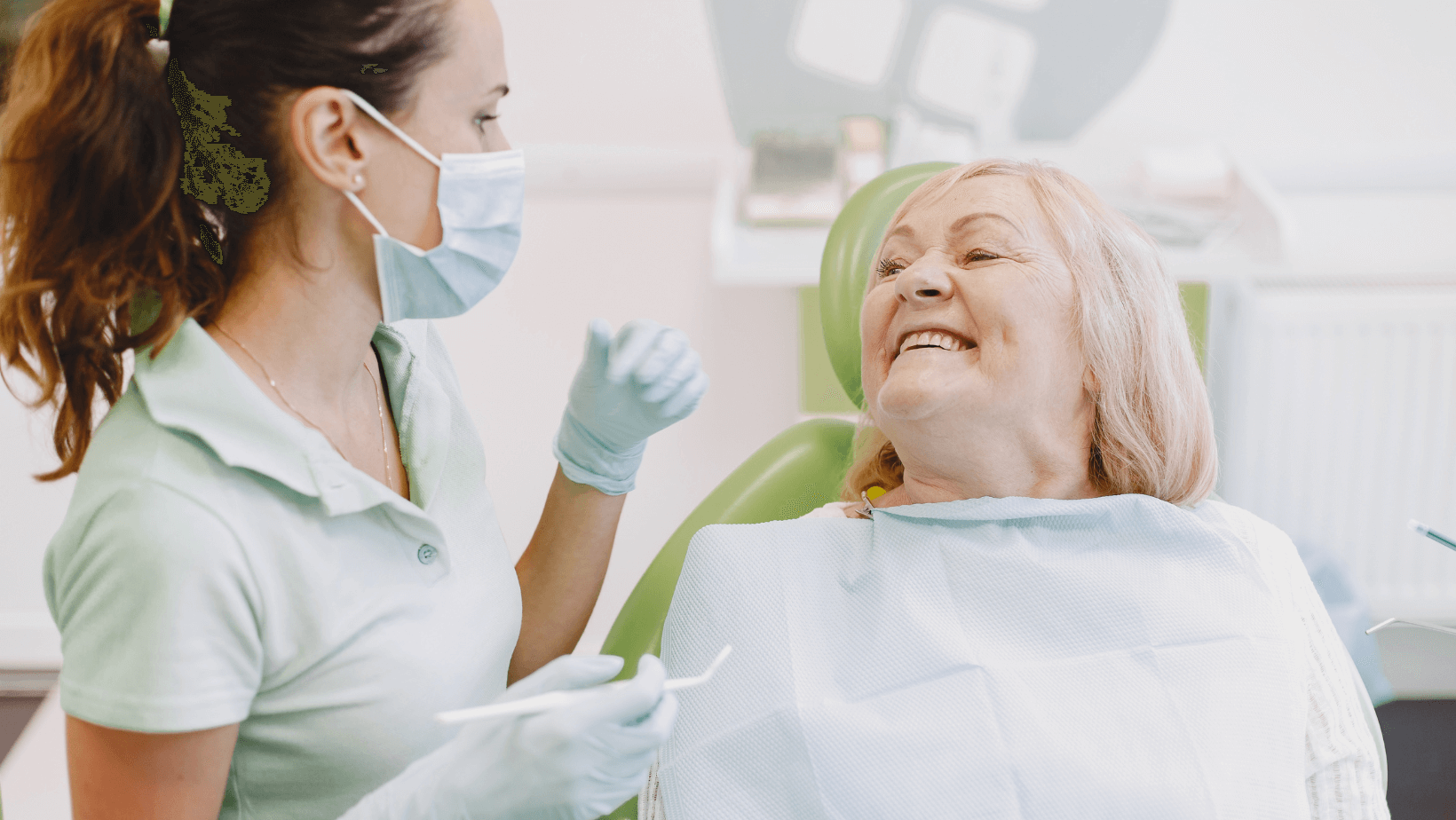The Importance of Geriatric Dental Care

Every part of the body is connected, which means an issue in one area can cause issues elsewhere. Dental health is an integral part of overall health; experts link poor oral hygiene with not just cavities, as many would expect, but also with an increased risk of major medical conditions like heart disease and diabetes. Clearly, dental care is an important aspect of overall senior care, but older patients are unfortunately less likely to seek both preventive and necessary dental health services. Here is why that needs to change—and how you can help improve geriatric dental care for you or your older loved ones.
Oral Health for Older Adults — What You Need to Know
Dental Health Challenges for Older Adults
Concerns of Oral Health in Older adult include:
- Dry mouth (xerostomia) - Dry mouth can lead to tooth decay, bad breath, sore throats, and more.
- Tooth decay - Tooth decay is incredibly common among older adults. In fact, according to the CDC, most older people have experienced dental caries (cavities) in their lives, and roughly 20% of the elderly population in the United States experiences untreated tooth decay, which can lead to tooth loss and make it harder to wear partial dentures. Even more concerning, older people are at particular risk of root caries, or cavities that go down to the root of the tooth.
- Gum disease (periodontal disease) - Gum disease affects more than just the gums; left untreated, it can lead to tooth loss or even abscesses in the mouth.
- Oral cancer - Like most other forms of cancer, oral cancer is more common among people who are older. According to the National Cancer Institute, most people who are diagnosed with some form of oral cancer receive their diagnosis at age 62 or older.
What Puts Older Adults at Greater Risk of Poor Oral Hygiene?
Older people unfortunately face greater obstacles to good oral hygiene. Some of the factors that increase the risk of oral health-related issues in older people include:
- Aging - Age is one of the greatest risk factors for declining oral health. With age comes the reduced ability to fight infections, a decrease in bone density, and reduced ability to generate healthy new tissues, all of which can contribute to poorer dental outcomes.
- Cognitive decline - Age-related cognitive impairments, including Alzheimer’s disease, can make it harder for seniors to complete activities of daily living like brushing and flossing teeth. These conditions can also make people more likely to indulge in sweets rather than healthier foods that are easier on the teeth.
- Physical disabilities - Aging can lead to physical disabilities, some of which may make it harder to brush and floss teeth, like rheumatoid arthritis.
- Wearing dentures - Older people are more likely to wear dentures, which can lead to issues if they are not properly cared for. According to the American Dental Association (ADA), wearing ill-fitting dentures or not cleaning dentures properly can lead to infections, inflammation, pain, mouth sores, and, if wearing partial dentures, an increased risk for loose teeth and even tooth loss.
Of course, aging alone does not put someone at risk for poorer oral health outcomes. Other risk factors for poor dental health include:
- Smoking or chewing tobacco products
- Chewing areca nuts (betel nuts)
- Eating a diet high in sugar
- Not flossing or brushing regularly
- Not getting a twice-annual dental cleaning
- Having diabetes (conversely, poor dental health may also lead to developing diabetes)
Improve Senior Oral Hygiene in 7 Steps
It is never too early or too late to prioritize oral hygiene. Some great ways older people can improve their dental routine include:
- Flossing daily. If using regular floss is too difficult, some great alternatives include water picks or pre-threaded picks.
- Using a soft-bristle toothbrush. The ADA recommends a soft-bristle toothbrush to reduce the risk of gum abrasion.
- Using toothpaste with fluoride. Most experts recommend using a fluoride toothpaste twice a day, typically once in the morning and once before bed.
- Properly upkeeping dentures. Those with missing teeth must always properly care for their dentures to avoid complications like cavities and sores.
- Prioritizing a healthy diet. Eating a balanced diet that is low in sugar can reduce the risk of tooth decay as well as lead to a lower chance of developing or worsening diabetes, which experts associate with poorer dental health outcomes.
- Twice-annual dental visits. Visiting the dentist—particularly a professional with experience in geriatric dentistry—can help older people maintain good dental hygiene while also spotting potential issues, like oral cancer, sooner.
- Not using tobacco products. Chewing and smoking tobacco can lead to serious health concerns, including oral diseases like mouth and throat cancer.
Finding and Paying for Senior Dental Care
Access to quality dental treatment can improve overall well-being, not just oral health. Finding a dentist who specializes in treating geriatric patients and paying for dental care are often the largest obstacles for many elderly patients seeking this type of care. Fortunately, there are plenty of resources available to help.
In the State of Missouri, the following resources can help older people find professionals who offer quality oral care services for free or limited costs.
- Aspen Dental. Hundreds of Aspen Dental locations across the United States host an annual Dental Day of Service for U.S. veterans, where qualifying veterans can receive free services.
- Donated Dental Services (DDS) in Missouri. Donated Dental Services is a free program where dental professionals offer services to qualified individuals, including low-income seniors.
- Medicaid. In the State of Missouri, Medicaid offers dental coverage to qualified individuals 65 or older. This resource can help you or your loved one find a Medicaid dentist in the State of Missouri.
- Medicare. Seniors on Original Medicare plans can access limited dental services, but largely have to pay out of pocket for them. Certain Medicare Advantage (Medicare Part C) plans may help pay for dental costs not otherwise covered by Original Medicare plans.
- Private insurance. Many private insurance companies offer dental coverage for seniors, including Medigap policies to supplement Original Medicare plans.
Prioritizing Geriatric Oral Health at St. Andrew’s
The caring staff at St. Andrew’s knows just how intricately linked dental health is to overall health. That is why our on-staff nurses and caregivers work with dental professionals and other healthcare providers to ensure each older adult in our community has all of their oral health care needs met, which includes regular visits to the dentist as well as helping residents brush and floss if they cannot do so comfortably on their own.
Give us a call or email us today to learn more about how we prioritize geriatric dental care today.







